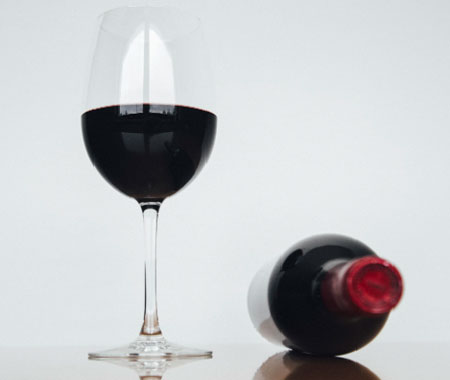Seriously? Aren’t all wines vegan?
Wines are made of grapes, yet not all wines are vegan. Unfortunately, most of the producers are still using products of animal origin in the wine fining process, even if there are plenty of vegan-friendly options. Why your wine may not be vegetarian and how to spot a pure and clear vegan wine?
The winemaking process includes harvesting, crushing, fermentation, fining or clarification, and aging and bottling. When fermentation occurs, the liquid is still hazy and it contains tiny particles such as heat-unstable proteins, tartrates, tannins, and phenolics. These substances are not harmful, but they affect the way the wine looks and tastes. The wine consumers prefer their wine to be clear and bright. The reason why most of the wines are not cruelty-free is because of the fining agents used in the clarification process.
To obtain a clear product, fining substances are added to the wine. These agents will bond with the undesired particles, producing even larger particles that will be removed easier from the wine. The common fining agents are egg whites, casein from milk, bull’s blood and bone marrow, gelatin, fish oil, and isinglass from the bladders of fish. Gelatin is obtained by boiling skin, tendons, ligaments, and bones with water, usually from cows or pigs.
Is fining necessary?
Most young wines will self-stabilize and self-fine if left long enough under appropriate conditions. Premium winemakers will deliberately leave more tartrates and phenolics in wines designed for long aging to develop the aromatic bouquet. They believe that fining agents reduce a wine’s aroma, flavor, texture, color, or aging potential. Fining though, will help achieve a similar result much sooner, saving money for the producer and the consumer. Fining is not necessary, but it is less time-consuming. Therefore, it helps obtain a good product at a reasonable price.
Vegan solutions for wine fining
Vegan wines are made without animal-derived products. Therefore the winemakers will either leave the wines to self-fine in time or they will use non-animal fining products. These finning agents are: bentonite, a form of clay or pea protein or carbon, limestone, kaolin clay, plant casein, silica gel, and other plant-based alternatives.
So far so good but we need to make an important clarification here. Usually, bentonite is used in fining white wines as it helps remove the excess of proteins. The high amount of proteins in white wine gives cloudiness and bentonite clay is a good natural solution to solve that. On the other hand, red wines contain tannins. The excessive amount of tannins gives a drying or astringent taste. But tannins bond with proteins and bentonite is not a suitable fining agent in this case. Most of the winemakers will still use animal-derived fining agents to reduce the amount of tannins in red wines. The positive thing here is that there are more and more red winemakers who do not use any fining agents. They maintain and enhance the aromatic qualities of their wine differently and handle the amount of tannins in the fermenter.
Labeling
There is no legislation to oblige the producers to mention on the label what fining agents, if any, have been used in a wine. Sometimes the producers clarify that the wine is unfined but again, the term has no legal meaning. Usually, the label does not mention if the wine is suitable for vegetarians or vegans and if/what finings agents have been used.
Nevertheless, some fining agents may produce allergies and they must be declared on the label if such a substance is above the detectable limits. These wine labeling rules apply in the EU, Australia, New Zealand, and Canada. However, we need more rigorous legislation in the winemaking field. Hopefully vegan and/or vegetarian consumers will be able to spot a cruelty-free wine bottle easier in the nearest future.
How to spot a vegan wine?
Not an easy task, I guess. Chances are you will get one if you choose natural organic and biodynamic wines. Some sellers will outline on the label that their wines did not go through fining and they are vegan friendly. Additionally, the good news here is that there is an increasing number of stores that specialize in natural and clean wines. There is hope online too, as many e-shops have now the search category for vegan or vegetarian wines.
The consumers show more interest in natural winemaking and we can only hope to see some progress in this approach.

